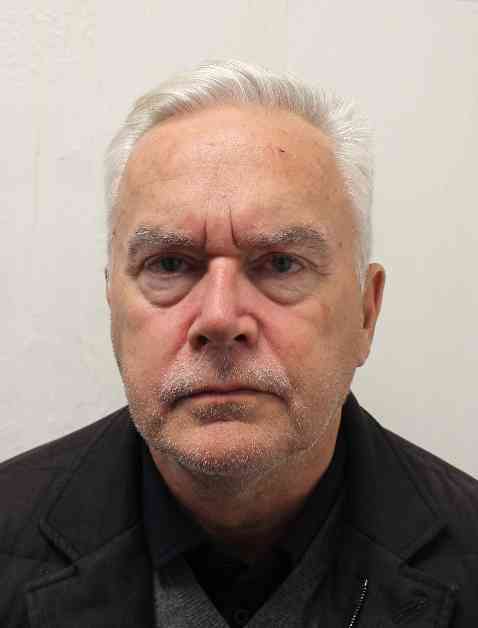Disgraced broadcaster Huw Edwards has been sentenced to a six-month suspended sentence after admitting to accessing indecent images of children. The 63-year-old confessed to three charges of “making” indecent photographs, which were sent to him by convicted paedophile Alex Williams over WhatsApp. Seven of the images shared with Edwards were of the most serious type, with the estimated age of most children being between 13 and 15, and one child as young as seven to nine.
Chief Magistrate, district judge Paul Goldspring, expressed disappointment in Edwards, stating, “It is not an exaggeration to say your long-earned reputation is in tatters.” Despite his previous good character, Edwards was handed a sentence of six months in prison, suspended for two years, with a requirement to complete a sex offender program.
During the trial, prosecutor Ian Hope revealed that Edwards had engaged in sexual conversations with Williams on WhatsApp, with some messages indicating financial transactions between the two parties. Williams, in turn, sent illegal images to Edwards, including videos of children aged seven to nine engaging in inappropriate acts. Despite some warnings from Williams about the age of the individuals in the images, Edwards failed to report or properly respond to the situation.
Huw Edwards did not deny receiving the indecent images, but his defense lawyer, Philip Evans KC, argued that Edwards did not make payments to Williams with the intention of receiving such images. Evans emphasized that Edwards did not store or use the images for personal gratification, nor did he share them with others. Edwards expressed deep remorse for the damage caused to his family and loved ones, acknowledging the betrayal of trust and faith placed in him by many.
The sentencing in Edwards’ case involved images categorized from A to C, with category A images being the most severe and involving penetrative sexual activity or sadism. Category B images encompass non-penetrative sexual activity, while category C images are those that do not fall into the previous two categories. The court considered the nature of the images received by Edwards as part of a WhatsApp conversation and the implications of “making” indecent images under the law.
Moving forward, it is crucial for individuals to understand the seriousness of accessing and possessing indecent images of children. The impact of such actions extends beyond legal consequences, affecting the lives of innocent victims and the families involved. Education and awareness about online safety and the dangers of engaging in inappropriate behavior online are essential in preventing similar incidents from occurring in the future.
Understanding the Legal Ramifications
The Crown Prosecution Service defines “making” indecent images broadly, encompassing actions such as opening attachments containing illegal images or accessing websites where such content is present. In the case of Huw Edwards, the court considered his receipt of images via WhatsApp as falling under the definition of “making” these indecent photographs. This interpretation highlights the importance of accountability and responsibility in online interactions, especially when it involves illicit material.
It is crucial for individuals to be aware of the legal ramifications of accessing and possessing indecent images, as the consequences can be severe. Offenders may face criminal charges, imprisonment, and inclusion on the sex offender registry, impacting their personal and professional lives indefinitely. By understanding and adhering to laws regarding online behavior, individuals can avoid engaging in activities that harm others and themselves.
Impact on Society and Accountability
The case of Huw Edwards sheds light on the broader societal issues surrounding the accessibility and distribution of indecent images of children. The exploitation and abuse of minors for sexual gratification are reprehensible acts that have devastating effects on the victims and their families. It is essential for individuals to recognize the harm caused by such actions and take responsibility for their choices and behaviors.
As a public figure, Huw Edwards’ actions have significant repercussions not only for himself but also for the trust and credibility of the broadcasting industry. The media plays a crucial role in shaping public opinion and disseminating information, making it imperative for individuals in positions of influence to uphold ethical standards and values. When public figures engage in illegal or unethical behavior, it erodes trust in the institution they represent and tarnishes their reputation irreparably.
In conclusion, the sentencing of Huw Edwards for possession of indecent images serves as a stark reminder of the importance of upholding moral and legal standards in all aspects of life. Individuals must be vigilant in their online interactions and mindful of the impact their actions can have on others. By promoting awareness, accountability, and responsibility, we can strive to create a safer and more ethical digital environment for everyone.












